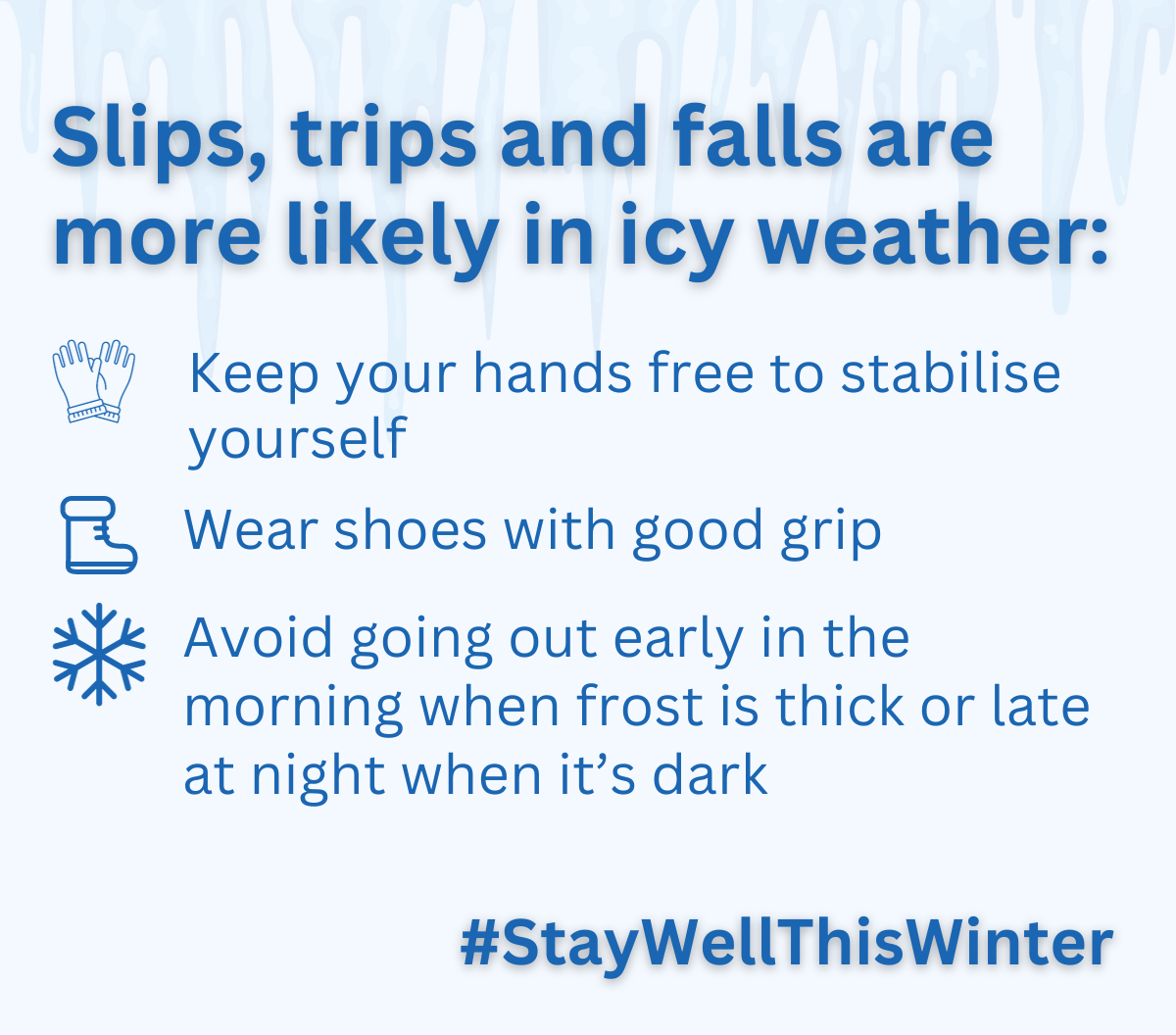
Winter conditions can be bad for our health, especially for people aged 65 or older, and people with long-term conditions such as heart or kidney disease, chronic obstructive pulmonary disease (COPD), asthma or diabetes. Being cold can raise the risk of increased blood pressure, heart attacks and strokes.
The cold and damp weather, ice, snow and high winds can all aggravate any existing health problems, increase the risk of a fall, and make us more vulnerable to respiratory winter illnesses. But there are lots of things you can do to stay well this winter.
As temperatures drop, it is important to remember that winter conditions can seriously affect your health. The NHS is here for you and our local health and care professionals are ready and waiting to help you this winter.
Top tips for winter wellness
- Look after yourself in the usual ways – staying active and drinking plenty of fluids, eating a balanced diet, getting enough sleep, and looking after your mental health.
- Get your vaccinations, particularly Covid-19 and flu at this time of year.
- Check on vulnerable family, friends, and neighbours.
- Keep your medicine cupboard stocked up with over-the-counter medicines like paracetamol and diarrhoea relief, and basic first aid equipment.
- Heat your home to at least 18°C, use blankets and wear slippers. If you need support heating your home, please click here. When heading out, make sure to wear layers and a hat, scarf and gloves depending on conditions.
- If you are unwell, think which service is right for you. If you need medical help right now, use NHS 111 online or call 111 for children aged under 5. If it is a real emergency and life-threatening, then you can call 999. If it's less urgent, contact your doctor or pharmacist.
- Check for safety concerns around your home.
Check for safety concerns around your home
You can make some simple changes around your home to make it a safer place. For example, by moving rugs and mats at the top or the bottom of the stairs out of the way, installing a night light near the bed to make sure you can see where you’re going if you wake up in the night, and removing trip hazards like trailing wires or clutter from your home.
It’s also important to think about fire safety. Most fires in the home start accidentally. Understanding why fires start and what you can do to prevent them will help keep you, other people and your property safe. Having working smoke alarms on every floor of your home can provide the vital early warning should a fire start.
You can complete an online home fire safety check yourself. After answering a few questions about you and your home, it will provide fire safety advice specific to you and tips on how to keep you and your household safe from fire. For your free online home fire safety check, visit www.ohfsc.co.uk
Useful links:
- NHS advice for cold weather
- Book a flu vaccine
- Mental health support
- Travelling in severe weather
- Met office weather alerts
- Managing asthma in cold weather
- How to reduce your bills and make your home more energy efficient

